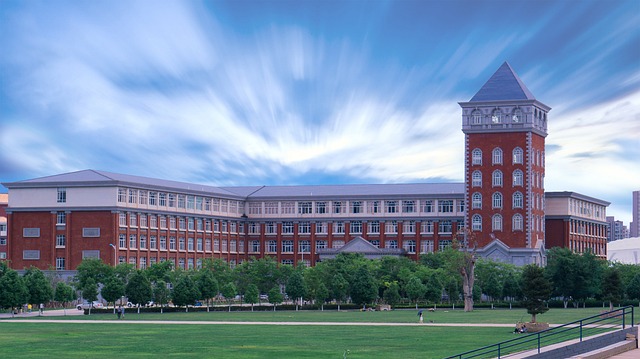In the landscape of American higher education, the quest for a prestigious degree often leads students to the Ivy League, a consortium of eight private institutions renowned for their rigorous academics, influential alumni, and historic prestige. However, beyond these elite institutions, a number of public universities offer comparable quality education and are increasingly recognized for their excellence. This article explores both Ivy League institutions and the so-called “Public Ivies,” universities that deliver top-notch education and competitive prestige.
The Ivy League: A Benchmark for Excellence
The Ivy League comprises eight private universities: Harvard, Yale, Princeton, Columbia, University of Pennsylvania, Dartmouth, Brown, and Cornell. These institutions are celebrated not only for their academic prowess but also for their significant contributions to research, culture, and leadership.
- Harvard University
Founded in 1636, Harvard is the oldest institution of higher education in the United States. It boasts a vast network of alumni, including numerous U.S. presidents, Nobel laureates, and influential leaders. Harvard’s endowment is the largest of any university, allowing it to offer extensive resources and opportunities to its students. - Yale University
Established in 1701, Yale is renowned for its excellent law school and strong emphasis on undergraduate education. Yale’s residential college system fosters a close-knit community and enriches the academic experience. Its alumni include five U.S. presidents and countless other notable figures. - Princeton University
Known for its strong focus on undergraduate education and close faculty-student interactions, Princeton offers a highly personalized academic experience. Its engineering and natural sciences programs are particularly well-regarded, and the university consistently ranks among the top in national and global surveys. - Columbia University
Located in New York City, Columbia benefits from its urban setting, providing students with ample opportunities for internships and cultural experiences. Columbia’s core curriculum is a hallmark of its undergraduate program, ensuring a broad-based education across disciplines. - University of Pennsylvania
Founded by Benjamin Franklin, Penn is known for its integration of professional and liberal arts education. Its Wharton School is one of the top business schools globally, and Penn’s focus on interdisciplinary studies provides students with a well-rounded education. - Dartmouth College
Dartmouth’s small size fosters a strong sense of community and personalized attention. Its emphasis on undergraduate research and unique off-campus programs, like the Dartmouth Outing Club, enhance the student experience. - Brown University
Brown is known for its open curriculum, which allows students to design their own academic path. This flexibility attracts students who seek an unconventional and self-directed education. - Cornell University
With a diverse range of programs and a global perspective, Cornell stands out for its commitment to public engagement and research. Its extensive network of alumni and industry connections provides students with ample career opportunities.
Public Ivies: Prestigious Education Beyond the Ivy League
While the Ivy League institutions are often considered the gold standard, several public universities offer equally prestigious education and are sometimes referred to as “Public Ivies.” These schools combine strong academic programs with a broader reach and often more affordable tuition.
- University of California, Berkeley
UC Berkeley is renowned for its research output and activism. It boasts top-ranked programs in engineering, business, and the humanities. Its location in the San Francisco Bay Area provides students with numerous professional and cultural opportunities. - University of Michigan, Ann Arbor
Known for its strong research programs and vibrant campus life, Michigan excels in fields such as business, engineering, and law. Its extensive alumni network and athletic programs contribute to its reputation. - University of Virginia
Founded by Thomas Jefferson, UVA is noted for its historic campus and rigorous academic programs. It has strong offerings in law, business, and the humanities, and its commitment to public service is evident through various initiatives and programs. - University of North Carolina at Chapel Hill
UNC Chapel Hill is one of the oldest public universities in the U.S. It is known for its excellent programs in public health, business, and law. Its strong commitment to research and public service sets it apart. - University of Wisconsin-Madison
UW-Madison is celebrated for its research in areas such as engineering, life sciences, and business. Its expansive campus and commitment to community involvement enhance the overall student experience. - University of Florida
UF offers a wide range of strong academic programs and is known for its research initiatives and athletics. Its large and diverse student body benefits from numerous opportunities for involvement and growth. - University of Texas at Austin
UT Austin is recognized for its top programs in business, engineering, and law. Its vibrant cultural scene and extensive research opportunities make it a prominent choice for students seeking a prestigious education. - Pennsylvania State University
Penn State combines strong academic programs with a robust research portfolio. Its extensive alumni network and focus on community and industry partnerships provide valuable career prospects.
Conclusion
Both Ivy League and Public Ivy institutions offer prestigious education and outstanding opportunities for students. The Ivy League represents a historic and elite group of universities known for their academic rigor and influential alumni. In contrast, Public Ivies provide high-quality education with the added benefit of public accessibility and often more affordable tuition. Students seeking a prestigious education should consider both these prestigious categories, as each offers unique advantages and opportunities for academic and personal growth.
